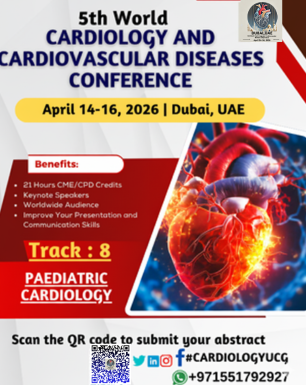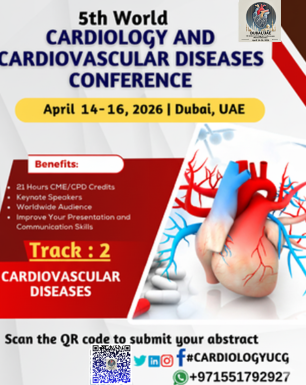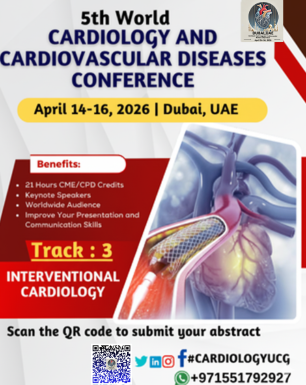Sub-tracks of paediatric-cardiology:
Congenital Heart Disease, Pediatric Heart Failure, Pediatric Arrhythmias, Pediatric Echocardiography, Pediatric Cardiac MRI, Pediatric Cardiac CT, Pediatric Cardiology Genetics, Fetal Cardiology, Pediatric Valvular Heart Disease, Pediatric Cardiomyopathy, Pediatric Pulmonary Hypertension, Pediatric Coronary Artery Disease, Pediatric Heart Transplantation, Interventional Pediatric Cardiology,
What is paediatric-cardiology?
paediatric cardiology is a specialized branch of medicine focused on diagnosing, treating, and managing heart conditions in infants, children, and adolescents. This field deals with congenital (present at birth) and acquired heart diseases in young patients, as well as the unique aspects of cardiovascular care specific to childhood.
1. Congenital Heart Disease (CHD):
- This is one of the most
common reasons for seeing a pediatric cardiologist. It includes a range
of heart defects that are present at birth, such as ventricular septal
defects (VSD), atrial septal defects (ASD), and tetralogy of Fallot.
Early diagnosis and treatment are crucial to improve outcomes.
- Pediatric Arrhythmias:
- Arrhythmias are abnormal
heart rhythms. In children, arrhythmias can occur due to various causes,
including congenital electrical system defects, inherited conditions, or
as a complication of other heart problems.
- Heart Failure in Children:
- Pediatric cardiologists
treat heart failure in children, which can be caused by conditions like
cardiomyopathies, congenital heart defects, or viral infections affecting
the heart. Treatment involves a combination of medications, lifestyle
modifications, and sometimes surgery or a heart transplant.
- Pediatric Cardiac Imaging:
- Diagnostic techniques such
as echocardiography, cardiac MRI, and cardiac CT are
used to visualize the heart’s structure and function in young patients.
These non-invasive tests are essential in assessing heart defects and
other conditions.
- Pediatric Cardiomyopathies:
- Cardiomyopathy refers to
diseases of the heart muscle that can lead to heart failure. These
conditions may be inherited or acquired and are typically managed through
medication, lifestyle adjustments, and sometimes surgical interventions.
- Pulmonary Hypertension in
Children:
- Pulmonary hypertension is
high blood pressure in the arteries of the lungs and can be a result of
congenital heart disease or other lung and heart conditions. Pediatric
cardiologists focus on managing this through a combination of medications
and surgeries.
- Pediatric Cardiac Surgery:
- Some children with heart
defects require surgery. Pediatric cardiologists work closely with
pediatric cardiac surgeons to plan and manage these surgeries, such as
valve replacements, corrective surgeries for congenital defects, or heart
transplants.
- Interventional Pediatric
Cardiology:
- This area includes
minimally invasive procedures such as catheter-based interventions to
close holes in the heart (e.g., ASD or VSD), valve repairs, or to relieve
obstructions in the heart and blood vessels.
- Inherited Cardiovascular
Conditions:
- Pediatric cardiology also
includes diagnosing and managing inherited heart conditions, such as long
QT syndrome, familial hypercholesterolemia, and arrhythmogenic right
ventricular cardiomyopathy, which may affect young patients and their
families.
- Preventative Cardiovascular
Care:
- Pediatric cardiologists
focus on preventing cardiovascular risk factors in children, such as
obesity, high blood pressure, and high cholesterol, which may lead to
future heart disease if not managed early.
Importance of Pediatric Cardiology:
- Early Detection: Early diagnosis and
treatment of heart conditions are crucial in children as they can impact
growth, development, and overall quality of life. Many congenital heart
diseases can be treated successfully if detected early.
- Specialized Care: Children have unique
cardiovascular needs compared to adults. Pediatric cardiologists are
trained to understand the developmental and physiological differences in
children's hearts, ensuring they receive the most appropriate care.
- Improving Outcomes: Advances in pediatric
cardiology have led to significant improvements in outcomes for children
born with congenital heart defects and other heart conditions. Many
children with heart disease now live into adulthood and lead active lives.
- Holistic Management: Pediatric cardiologists
work closely with other specialists, including pediatric surgeons,
geneticists, and pulmonologists, to provide comprehensive care tailored to
the needs of each child.





